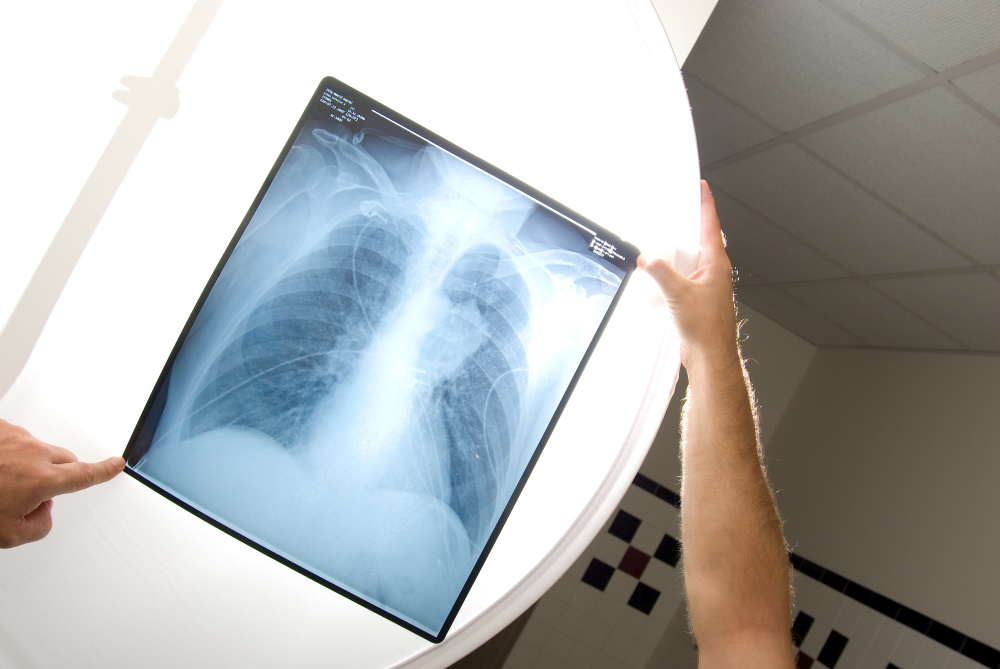- Tobacco smoke chemicals such as tar and formaldehyde penetrate the cells and damage DNA.
- Inflammation from tobacco smoke can also be a driving force behind cancer.
Tobacco smoke is the number one risk factor for lung cancer – and every time it is inhaled, it deals a double blow to lung cells, creating conditions almost ideally suited to the formation of cancer.
Does tar in cigarettes cause cancer?
Chemicals such as tar and formaldehyde within tobacco smoke penetrate the cells and damage DNA. This can wreak havoc in genes that control the delicate process of cell growth and division: genes that promote division may become hyperactive, and genes that apply the brakes to runaway division may lose their grip.
How does inflammation play a part?

By itself, the damage to genetic programming can cause normal lung cells to turn cancerous, but the process gets a major assist from a second effect of tobacco smoke: inflammation.
Inflammation is part of the immune system’s response to disease or tissue damage. A teeming squad of white blood cells, hormones, and other substances pours into the affected area to fight invaders, remove dead or injured cells, and make repairs. The process is essential to healing wounds and rebuilding damaged tissue. But it can also be a driving force for cancer.
The baneful effects of DNA damage plus inflammation have been demonstrated in numerous research studies. In one, researchers exposed mouse lungs to a tobacco carcinogen (cancer-causing chemical) alone, or in combination with another substance that induces lung inflammation. The combination accelerated the development of lung cancers that carried a mutation in the gene KRAS – a common feature of many human lung cancers.

“KRAS plays a key role in signaling cells to divide,” explains David Barbie, MD, a specialist in Dana-Farber’s Lowe Center for Thoracic Oncology, whose research seeks to identify genes that can be targeted by novel drugs. “In the presence of inflammation, KRAS essentially gets stuck in the ‘on’ position, allowing cell division to proceed non-stop.”
The genetic damage wrought by cigarette smoke occurs throughout the genome; it is no more likely to occur in a cancer-related gene than a gene with no involvement in cancer, Barbie observes. But by producing damage so indiscriminately, it increases the chances that mutations will arise in cancer-linked genes.
“Every time an individual smokes, all 3 billion base pairs of DNA in lung cells are exposed to toxic chemicals,” Barbie notes. “The chance that any one of these base pairs may be altered, or mutated, is low. But chronic exposure to smoke raises the risk that an unlucky event will happen in a cancer-related gene. The longer and more frequently one smokes, the higher the risk.”
About the Medical Reviewer
 My interest as a medical oncologist and cancer biologist is to identify novel targets for cancer therapy. Specifically, I have focused on lung cancer clinically with a particular interest in targeting KRAS mutations, which have remained refractory to current therapies. We previously found that TBK1, a kinase that is normally involved in immune cell signaling, prevents apoptosis in cancer cells driven by oncogenic KRAS. Others have found that inhibition of the NF-kB and STAT pathways, in which TBK1 is involved, also results in impaired tumor growth in KRAS-driven mouse lung cancer. Recently, we discovered that a kinase inhibitor, momelotinib, inhibits TBK1 and JAK signaling and has activity in mouse models of Kras-driven lung cancer. Based on these findings, we have opened a trial together with Gilead Sciences combining momelotinib with the MEK inhibitor trametinib in treatment refractory KRAS mutant lung cancer. My overall goal is to continue this effort clinically and in the lab to refine combination therapy for KRAS-driven lung cancer and improve outcomes for this challenging disease.
My interest as a medical oncologist and cancer biologist is to identify novel targets for cancer therapy. Specifically, I have focused on lung cancer clinically with a particular interest in targeting KRAS mutations, which have remained refractory to current therapies. We previously found that TBK1, a kinase that is normally involved in immune cell signaling, prevents apoptosis in cancer cells driven by oncogenic KRAS. Others have found that inhibition of the NF-kB and STAT pathways, in which TBK1 is involved, also results in impaired tumor growth in KRAS-driven mouse lung cancer. Recently, we discovered that a kinase inhibitor, momelotinib, inhibits TBK1 and JAK signaling and has activity in mouse models of Kras-driven lung cancer. Based on these findings, we have opened a trial together with Gilead Sciences combining momelotinib with the MEK inhibitor trametinib in treatment refractory KRAS mutant lung cancer. My overall goal is to continue this effort clinically and in the lab to refine combination therapy for KRAS-driven lung cancer and improve outcomes for this challenging disease.
Are people who quit 30 years ago after smoking for several years still at risk for developing lung cancer?
Hi Margaret,
Thanks for reading the blog and for this great question. Healthy changes start taking place almost immediately after one quits smoking, and after 20 years, the risk of developing cancer generally returns to that of the non-smoking population. These two blog posts explain this in more detail:
http://blog.dana-farber.org/insight/2016/04/how-to-reduce-your-risk-of-oral-cancer/
http://blog.dana-farber.org/insight/2012/12/can-the-effects-of-smoking-be-reversed/
However, it’s important to note that lung cancer does not occur only in smokers. If you experience symptoms, including coughing or shortness of breath, it’s important to talk to your doctor. You can learn more about lung cancer – including risk factors, symptoms, and treatment – on our website: http://www.dana-farber.org/Adult-Care/Treatment-and-Support/Treatment-Centers-and-Clinical-Services/Thoracic-Cancer-Treatment-Center.aspx
We wish you the best.
DFCI
Hopefully this is more than enough information for many to stop smoking.
I did not know tobacco smoke damaged DNA. This was an eye opening article to read!
Would all this medical info be applied to ppl who smoke marijuana as well, via joints, pipes, water filters, etc…
Hi Jill,
Thanks for your comment and this great question. We have a post going up tomorrow (12/15) on this topic, but essentially the scientific connection between marijuana and cancer, including lung and others, is mixed. Some studies have found a connection between marijuana use and certain cancers, but others haven’t, and some mouse studies even showed marijuana had protective properties against certain tumor types.
There is more information available on the current research on the National Cancer Institute website, and scientists are continuing to study marijuana to determine what the connection may be to certain diseases. https://www.cancer.gov/about-cancer/treatment/cam/hp/cannabis-pdq
We hope this is helpful.
DFCI